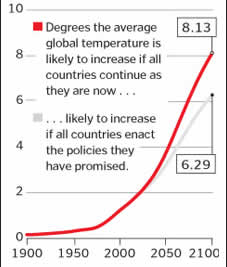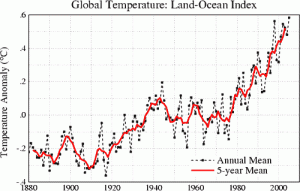I saw an interesting story in the New York Times, about a gasoline tax, and people’s feeling about said tax. There weren’t very many surprises in the facts of the article. For example:
Eighty-five percent of the 1,018 adults polled opposed an increase in the federal gasoline tax, suggesting that politicians have good reason to steer away from so unpopular a measure.
You don’t say. Not a real shocker that people don’t want to spend more money on gas for no reason, is it? Then:
55 percent said they would support an increase in the tax, which has been 18.4 cents a gallon since 1993, if it did in fact reduce dependence on foreign oil. Fifty-nine percent were in favor if the result was less gasoline consumption and less global warming.
My question here is: what else could a tax increase possibly do? Higher tax would decrease consumption, thus lessening our dependence on all oil, regardless of where it came from, thus reducing our dependence on foreign oil. Similarly, since global warming is caused by carbon dioxide, a byproduct of (among other things) fossil fuel combustion, less use of oil would have to decrease human contribution to global warming. There is no other possible result of an increase in the gas tax, unless perhaps it makes people so excited that they drive their hummers all over the place for no reason. Not likely.
There are actually some legitimate questions about how to enact such a tax, like this:
Because increasing the gas tax is regressive, falling hardest on those who can least afford it, Mr. Borenstein would offset the bite by lowering income taxes in a way that would “make most middle and lower income people better off.” But they would end up driving less because of the rising cost of gasoline, some economists believe. By Mr. Borenstein’s calculation, a 10 percent increase in the price of gasoline reduces consumption by 6 to 8 percent “over the long run.”
Absolutely, a regressive tax like this needs to be counterbalanced appropriately, and the specifics of any plan should be debated and amended until the outcome is right. That, however, is not an argument against raising the gas tax. The other concern the article describes is also legitimate:
“The tax would have to be earmarked for certain specific projects,” one of the people polled, Rich Arnold, 54, a Republican . . . he added, “If it was a tax that would sponsor research for fuel cells or alternative fuel sources, I could buy that.”
. . .
Lisa Fisher, a 36-year-old yoga instructor in Chicago who described herself as a Democrat, wants any additional revenue earmarked.
“If the tax is increased and oil companies reap the benefit, I would be against it,” Ms. Fisher said. “But if the tax money went to the development of electric cars, I would favor the higher tax. It is important we are not dependent on foreign oil. We are over there fighting because we are dependent.”
This is another question that could be settled by policy debates. I agree that the extra income would have to be judiciously allocated, when it was not being balanced by tax cuts for the bottom 90 percent of the income scale. All of these micro-scale policy question aside, the article basically shows that a majority of Americans support increasing the gas tax provided the laws of physics and economics do not change drastically. So why aren’t we doing it right now?
Write your representative or senator today and ask them!

